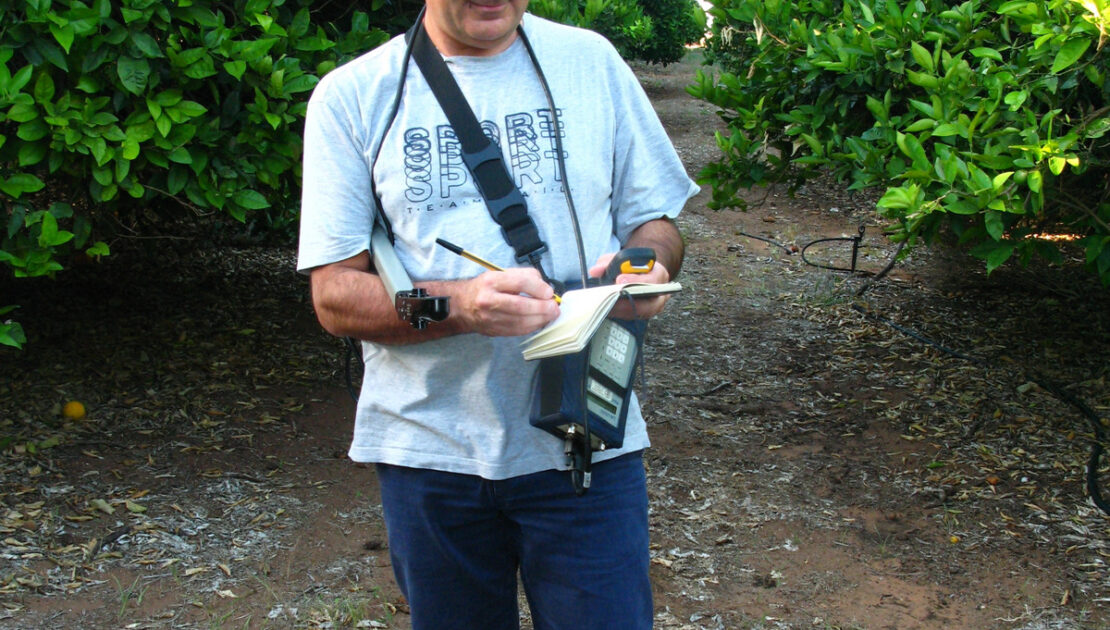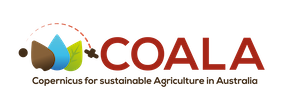Applications for AgTech; In Conversation with Dr Guido D'Urso

Applications for AgTech; In Conversation with Dr Guido D’Urso
- March 24, 2023
- UNSW
- Blog
- No Comments
Dr Guido D’Urso starts each day with a cup of Italian coffee as he reads his emails. Working on an international project, Dr D’Urso corresponds with his Australian colleagues in the morning, his European colleagues during the day, and his American peers in the evening. Guiding PhD students, coordinating postgraduate courses, and managing an international project, Dr D’Urso is an expert in agricultural water management. We spoke with Dr D’Urso about using AgTech for the COALA project and how this same technology can be used to advance food security and bring global society closer together.
“My name is Guido D’Urso, and I’m a professor at the University of Naples at the Department of Agricultural Sciences. And I’m also the scientific coordinator and supervisor of the COALA project, which is led by the Ariespace company, which is a spinoff of our university.” Dr D’Urso has spent his career investigating how to save water in irrigation. “My PhD thesis was long time ago, dealing with remote sensing applications for irrigation management. So, for the last 30 years, I’ve been working with satellite data for improving irrigation management, and water management in agriculture.”

International Partnerships
Dr D’Urso approaches the COALA project not as a technology transfer but as a partnership between the two continents. “We’re not really transferring knowledge because Australia has an excellent scientific capability. Experts manage agricultural inputs, water and nutrients. [Australia] is a very modern agricultural system, and so it appears to us the ideal place to join forces between Europe and Australia to move the application of this specific aspect of digital agriculture.”
Australian growers are key candidates to test COALA’S European technology. Dr D’Urso explains why the uptake of COALA products has been successful.”We definitely found that Australia is in an advanced position in using digital technologies. But this is mainly for the huge area of paddocks compared to the average paddock size in Europe. Also, probably a generational change, which is happening among agricultural entrepreneurs in Australia. So, there is more willingness, let’s say, in accepting new technologies, rather than traditional methods.”
Aussie growers have also had to adopt technology to help them manage water in a drought-heavy country. “The water market in Australia is so advanced, so farmers have a much higher perception of the value of water compared to Europe. This is also due, of course, to climatological factors, absolutely as much drier than Europe and even in the Mediterranean area. We cannot compare the level of drought you can experience in Australia in that farmers are much more aware of the importance of saving water resources. That’s why I think that COALA is able to support farmers.”

Fieldwork for Success
Dr D’Urso has identified a key method for success when developing the COALA project. This is linking the COALA technology, to what growers need and experience on the land. He attributes this to the success of the uptake of the project so far. “We know that already farmers are using tools and software packages for managing machinery and other farm practices. The level of digitalisation in Australia is pretty high. So COALA didn’t want to present farmers just another software platform. We want to link useful software with those who are looking using more data and relevant data.”
While the COALA project is focused on Australian agricultural technology, Dr D’Urso investigates other applications for space technology. The idea behind expanding the capacity of earth observation stems from food security. “Food security is important. Just see what has happened with the war in Ukraine and the impact in Africa. A problem is growing cereals, and what is the impact on the livelihood of everybody on the planet. We are all connected, things will probably be changing with globalisation, but we need to consider food security. But this will take time. And probably we will become a globalised world very soon, hopefully. Which will mean also peace and wealth for everybody.”

Food Security
Italy’s proximity to Africa and the Middle East has connected Dr D’Urso to food security projects in these areas. “I’m involved in projects trying to create a network of young scientists dealing with food security across the Mediterranean from Spain, up to Jordan. And that is also extremely motivating. You can transfer your knowledge to the scientists in those areas to create work in the future.”
Continuing on a global theme, Dr D’Urso has enjoyed working on the COALA project.
“I like Australia very much. I think it’s a place of opportunities. It’s an incredible country.” He reflects on the similarities between the growers and researchers in Europe and in Australia. “I did not realise how close Australian mindsets are to the mentality of Europeans. So, travelling across Australia, we’ve been meeting many Italians, second and third generation. So it’s a melting pot very rooted in Europe, especially. And this makes a special feeling when I visit Australia, together with the beauty of the nature, the beauty of your cities, and the organisation of your society.”
Dr D’Urso reflects on the ultimate goal for applying space technology. “We are responsible towards the next generation for a better world.”

